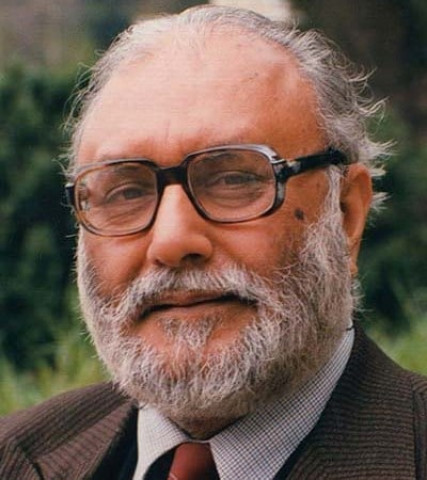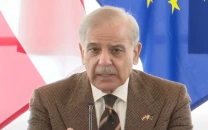Higgs boson: Pakistan’s contribution to a major breakthrough
Some of the earliest work in the Standard Model was done by Dr Abdus Salam.

Few Pakistanis know what the Higgs boson is and even fewer realise that some of the earliest theoretical groundwork that led to this discovery was laid by Pakistan’s only Nobel laureate, Dr Abdus Salam.
The Higgs boson is a subatomic particle whose existence was confirmed by the European Organisation for Nuclear Research (known by its French acronym, CERN) on July 4. The discovery of the particle provides the last remaining bit of empirical evidence necessary for the Standard Model of physics, which seeks to explain the existence of all forces in the universe except gravity.
In the 1950s, physicists were aware of four different types of forces in the universe: gravity, electromagnetic force, the force that attracts an electron towards the nucleus of an atom (weak nuclear force), and the force that keeps the nucleus of the atom together (strong nuclear force). The Standard Model can offer an integrated explanation for the latter three of those forces. Its origins lay in the discovery in 1960 by American physicist Sheldon Glashow of the fact that the weak nuclear force and electromagnetic force are the same thing.
Of the many discoveries that later solidified the Standard Model of physics was work done in 1967 by Dr Abdus Salam and American physicist Steven Weinberg in unifying the Higgs mechanism to Glashow’s theory, giving the “electroweak theory” its current form. But Dr Salam’s contributions to particle physics do not end there. Collaborating with Indian physicist Jogesh Pati, he proposed the Pati-Salam model in 1974, which further moved forward the theoretical underpinnings of the Standard Model.
It was for this body of work that Salam, along with Weinberg and Glashow, was awarded the Nobel Prize for physics in 1979.
While this work in theoretical physics may seem obscure and with little practical application, the tools created by physicists engaged in this research are ones we all live with today. For instance, in order to assist the thousands of physicists around the world collaborating on this project, European scientists helped develop the internet. The need to crunch massive amounts of data led to the development of what is now known as cloud computing.
Research like this does not come cheap: it cost the Europeans about $10 billion to build the Large Hadron Collider, the atom-smashing machine that allowed for the discovery of the Higgs boson. But the economic payoffs for any country that invests in them seem to be several orders of magnitude higher, making it well worth it. Imagine: the thousands of internet companies – worth trillions of dollars – would not exist, were it not for the innate curiosity of particle physicists seeking what seems an outlandish goal: one theory that explains everything in the universe.
It is this curiosity to seek out the truth through empirical evidence, to seek explanations for the inexplicable, to unmask the unknown, to venture into the uncharted, that forms the basis for the fundamental drive of moving humanity forward. It is at the frontier of discovery that the future is born, and new industries and new avenues of wealth created, allowing millions – even billions – to lead better lives than they did before.
A Pakistani was at the fore of this frontier of discovery in the 1960s and 1970s. But rather than encourage and celebrate his magnificent achievement, he was maligned and sidelined for his faith. An ironic fact: most physicists are staunch atheists but Salam was one of the few firm believers in God.
Published in The Express Tribune, July 6th, 2012.


















COMMENTS
Comments are moderated and generally will be posted if they are on-topic and not abusive.
For more information, please see our Comments FAQ